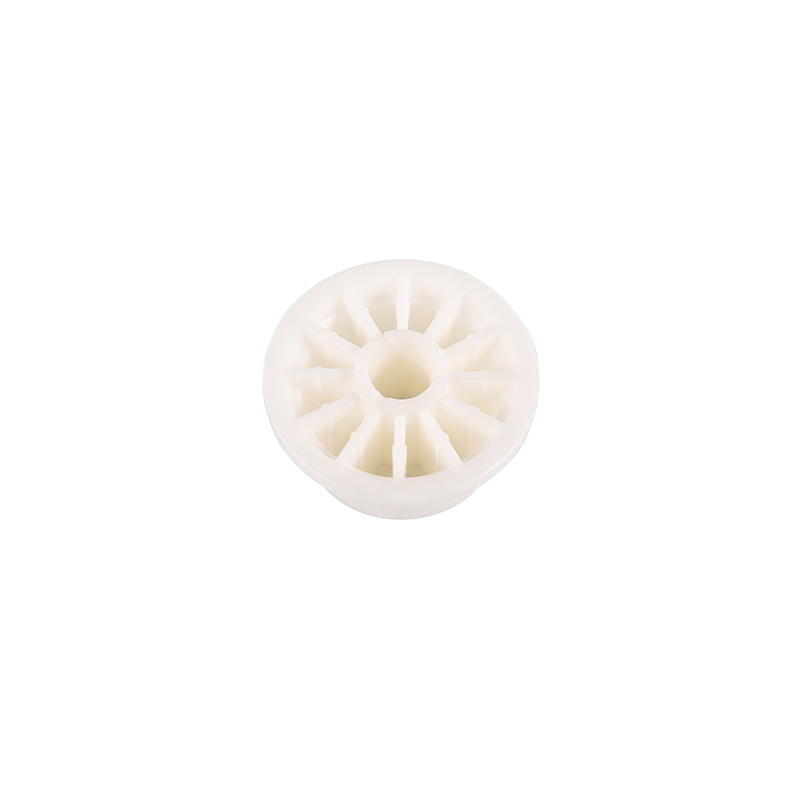Precision Mold Manufacturing Enhances Quality of Automotive Injection Molding Parts
Feb 12,2026Growing Demand for Electrical Injection Molding Accessories in Smart and Electric Systems
Feb 05,2026Automotive Injection Molding Parts Drive Lightweight and High-Precision Vehicle Manufacturing
Jan 29,2026The Growing Importance of Electrical Plastic Injection Molding Accessories
Jan 22,2026The Role of Precision Injection Molding in Automotive Manufacturing
Jan 15,2026In the automated production lines of modern food industry, every machine bears the responsibility of ensuring food safety and enhancing production efficiency. Yet, within these precise and complex systems, a critical component is often overlooked—the internal parts that form their transmission core. These components must not only withstand high-intensity operation but also directly or indirectly contact food, demanding extremely strict material selection. Among various engineering plastics, polyoxymethylene (POM) has successfully stood out from traditional metal materials due to its exceptional comprehensive properties, becoming the ideal choice for transmission parts in food machinery. POM injection-molded gears, with their high strength, wear resistance, and low friction coefficient, provide a solid foundation for the stable operation of food machinery. Meanwhile, their unique food-grade attributes perfectly align with the highest safety standards of modern food production, building a robust defense for consumers.
The operating environment of food machinery is complex and diverse—from low-temperature freezing to high-temperature baking, from wet cleaning to oil contamination—each step poses severe challenges to the performance of transmission components. Traditional metal gears, though strong, are prone to corrosion and rust in long-term humid environments, produce high operational noise, and require frequent lubrication. This not only increases maintenance costs but also introduces risks of food contamination.
POM injection-molded gears, however, perfectly avoid these issues. They offer excellent corrosion resistance and self-lubrication, enabling smooth operation without additional lubrication—greatly reducing maintenance frequency and potential pollution risks. More importantly, POM’s low density makes gears lightweight, effectively reducing overall equipment load and energy consumption. Its high-precision injection molding ensures accurate and smooth gear meshing, thereby reducing vibration and noise while improving overall equipment efficiency. Thus, POM injection-molded gears, with their superior comprehensive performance, have become the core driving force behind the safe and efficient operation of modern food machinery.
Choosing food-grade POM is the primary prerequisite for ensuring the safety and compliance of food machinery components. This special polymer not only inherits the excellent physical properties of ordinary POM—such as high hardness, strength, outstanding fatigue resistance, and creep resistance—but also strictly adheres to global food contact safety regulations in its chemical composition.
This means food-grade POM parts for food machinery, when in direct or indirect contact with food, do not release harmful substances or affect food taste, odor, or quality. Additionally, POM’s wear resistance ensures gears maintain dimensional stability even after long-term high-speed operation, extending service life and reducing micro-particle contamination from wear. Its low water absorption guarantees no dimensional expansion or performance degradation in humid environments—critical for food production lines requiring frequent cleaning and disinfection. Thus, food-grade POM is more than an engineering plastic; it represents a commitment to food safety, a priority for all food machinery manufacturers and users.

The exceptional performance of POM gears for food machinery stems from sophisticated injection molding processes. This is not merely melting plastic and injecting it into a mold but a rigorous craft starting with non-toxic plastic gear mold design.
Mold design directly determines the final product’s precision, surface quality, and internal structure. To produce high-precision gears, molds must use precision machining techniques to ensure key parameters—such as tooth profile, pitch, and depth—are accurate. Mold material selection and surface treatment are also crucial to resist wear during high-temperature, high-pressure injection and ensure smooth demolding.
In injection molding, parameter control is decisive. Precise regulation of melting temperature, injection pressure, holding time, and cooling rate prevents defects like shrinkage, warpage, or flash, ensuring every POM gear has excellent mechanical properties and dimensional stability. This meticulous attention to detail guarantees that every injection-molded POM part for food machinery meets the highest standards.
The food industry uses a wide range of equipment—from bakery dough mixers and beverage filling lines to meat processing cutting machines—each with unique transmission systems and operational requirements. Standardized POM gears often fail to meet all needs, leading to the rise of customized designs.
Professional custom services for food-grade POM injection-molded gears can create optimized transmission solutions based on customer-provided equipment drawings, technical parameters, or specific needs. Whether special tooth profiles, specific modules, or complex components integrating other functions (e.g., bearing holes, keyways), injection molding can achieve them with high flexibility and precision.
Moreover, since POM can be mixed with different colorants, manufacturers can produce transmission parts in various colors to match food machinery designs. This not only facilitates equipment maintenance and identification but also enhances aesthetic appeal. This customization and diversification enable POM injection-molded gears to flexibly adapt to complex food machinery, unlocking infinite possibilities for innovative design and efficient production.
Ultimately, the value of POM transmission components is reflected in their practical application on production lines. For example, in high-speed packaging machinery, POM injection-molded gears significantly reduce friction and noise, lower energy loss, and thus cut overall energy consumption while boosting productivity.
In equipment operating in humid or low-temperature environments—such as washers or refrigeration units—POM’s corrosion and low-temperature resistance ensure long-term stable performance in harsh conditions, greatly reducing downtime from component failure. In transmission systems requiring frequent replacement and maintenance, injection-molded POM parts, with their consistency and interchangeability, simplify replacement processes and further reduce maintenance costs.
In summary, POM injection-molded gears are more than mere components. Through their exceptional performance and high reliability, they pave an efficient, stable, and safe production path for modern food machinery. The long-term economic benefits and brand reputation enhancement they bring cannot be ignored by any manufacturer or user.
Copyright © Suzhou Huanxin Precision Molding Co., Ltd. All Rights Reserved. Custom Plastic Injection Molding Supplier


